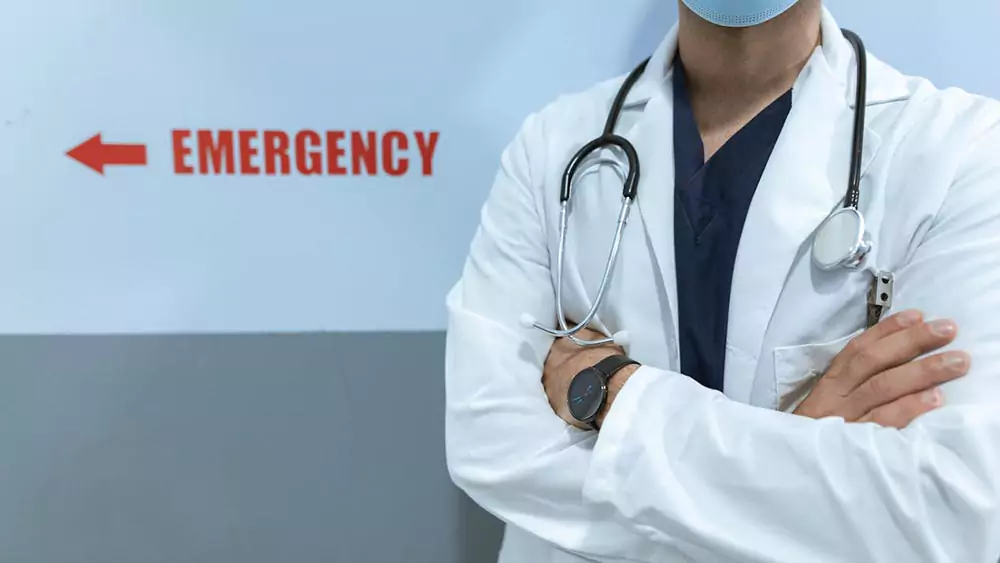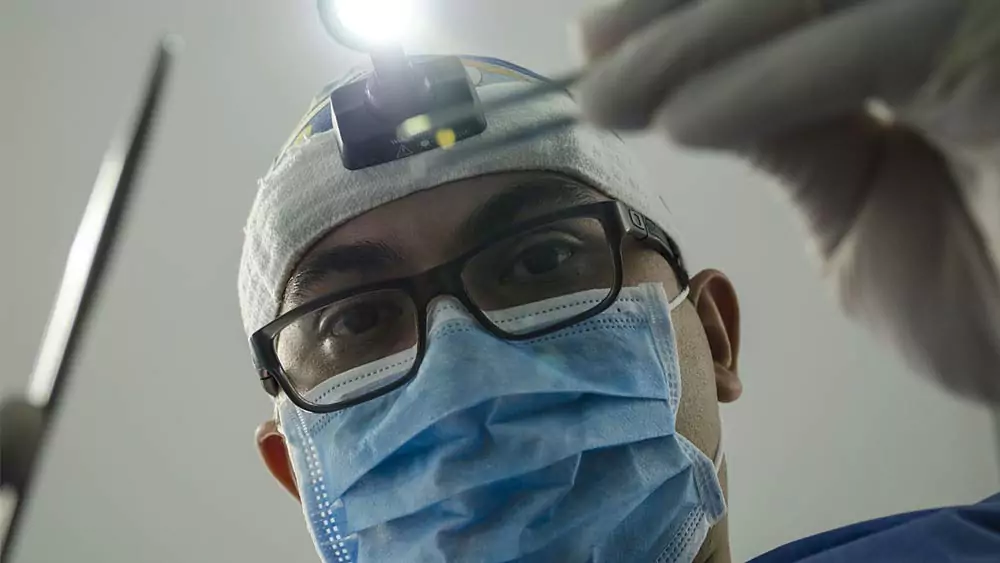Signs That It Is Time to Contact a Surgical Specialist

When it comes to your health, it’s crucial to know when to get professional help. Your regular doctor or non-surgical treatments can handle many health issues, like managing ongoing back pain at home without surgery. But sometimes, you need to see a surgeon promptly to prevent further problems. Also, ongoing stress can have an impact on your body and mind making you more likely to develop high blood pressure, diabetes, and mental health problems, which might need careful treatment in the end.
Knowing the signs that show you need surgery can help you act wisely and improve your health for the better. To make smart choices about your well-being, you need to look into and grasp the techniques, dangers, and advantages before you go for surgery. In this guide, we’ll look at major signs that indicate it’s time to see a surgeon so you’re well-informed and ready to tackle any serious health problem that might come up.
Most Common Reason to See a Doctor: Don’t Ignore Symptoms

Your health matters most, and knowing when you need to see a surgical doctor can save your life. Don’t wait if your symptoms keep getting worse even after you’ve tried initial treatments, or if other treatments aren’t working as well as you’d hoped. Also, if you notice new or unexpected symptoms, or if your ongoing conditions need different options, it might be time to get surgical help.
Here are eight key signs that tell you it’s time to see a surgical expert for advice and help. When you know these signs, you can take action to deal with health issues and fix the problem giving you the best chance at staying healthy.
1. Persistent and Severe Abdominal Pain
Persistent and severe abdominal pain can be a red flag for conditions that require surgical intervention. While occasional discomfort might be due to benign issues like indigestion or muscle strain, severe pain that doesn’t subside could indicate serious problems such as appendicitis, gallstones, or a bowel obstruction. These conditions often require prompt surgical treatment to prevent complications such as infection or tissue death, which can be life-threatening if not addressed quickly.
2. Chronic Joint Pain and Swelling According to a Surgical Doctor

Joint pain and swelling that lasts can mess up your life. It makes everyday tasks tough and hits your overall health hard. Take shoulder fractures, for instance. Dr. Kruse explains these happen when the shoulder joint bone breaks. They cause a lot of pain, and swelling, and make it hard to move your arm. If ongoing joint pain or swelling gets in the way of your daily life, you should reach out to a surgery expert. They can figure out what’s going on and help fix the problem.
Likewise, conditions like bunions can cause continuous joint torment and enlarging, and in serious cases, invasive medical procedures may be the most ideal choice to treat bunions offering a drawn-out fix for this foot disfigurement.
3. Specialists Elaborate Unexplained Loss of Weight
Sudden and unexplained weight loss can be alarming and is often a sign that something is amiss with your health. While several non-surgical conditions can cause this symptom, such as hyperthyroidism or certain infections, etc. it can also be indicative of some serious issues like gastrointestinal cancers or severe digestive disorders. When weight loss is rapid and unexpected, a thorough evaluation by a surgical doctor may be necessary to identify the underlying cause and determine whether surgical treatment is needed.
During the consultation, the specialist may recommend diagnostic tests like imaging studies, endoscopy, or biopsy to get a clearer picture of your internal organs and tissues. If a significant problem like a severe blockage or tumor is detected, surgical intervention might be the best course of action to remove the source of the problem and prevent further health deterioration.
4. Suspicious Lumps or Uncontrolled Growths
Finding a suspicious lump or growth anywhere on your body can cause concern. While not all lumps are cancerous, it’s crucial to have any new or changing growths evaluated by a specialist to rule out serious conditions such as malignancies. Surgical specialists, particularly those trained in oncology, can assess these lumps through physical examination, imaging, and biopsy to determine if surgical removal is necessary.
If a lump is found malignant, the surgical doctor will discuss various treatment options with you, which may include surgical excision combined with other therapies like chemotherapy or radiation. Early detection and prompt surgical intervention can be key to successful treatment and improving long-term outcomes. Thus, if you notice any new lumps or changes in existing ones, do not delay in seeking expert advice.
5. Trouble Swallowing or Persistent Hoarseness
Difficulty swallowing (dysphagia) and persistent hoarseness can be symptoms of potentially serious conditions affecting the throat, esophagus, or vocal cords. These symptoms could suggest issues such as esophageal strictures, vocal cord nodules, or even cancers of the throat or esophagus. If these symptoms persist for more than a few weeks, it is significant to seek the expertise of a surgical specialist to investigate the underlying cause.
The specialist may recommend diagnostic procedures like endoscopy, laryngoscopy, or imaging studies to examine the structures of your throat and esophagus. If a significant anomaly is detected, surgical intervention might be necessary to remove growths, repair structural abnormalities, or take biopsies for further analysis. Addressing these symptoms promptly with the help of a surgical specialist can lead to early detection and treatment of potentially serious conditions, significantly improving your health outcomes.
6. Recurrent Infections or Non-Healing Wounds
Recurrent infections and non-healing wounds are threatening signs that your body may be unable to fight off infections effectively, often requiring a surgical evaluation. Conditions like abscesses, chronic osteomyelitis (bone infection), or diabetic foot ulcers can become severe if not treated appropriately. Non-healing wounds, particularly in individuals with underlying conditions like diabetes or vascular disease, can lead to complications such as gangrene or systemic infection (sepsis). Surgical specialists can perform debridement, skin grafts, or other techniques to enhance wound healing and prevent further deterioration.
7. Internal Hemorrhaging
Internal bleeding can happen in any part of the body because of damage to blood vessels. It makes blood spill into encompassing tissues or organs and may start from your brain to the abdomen. Generally, any accident or injury causes this issue but sometimes, internal hemorrhage may result from organ damage, gastritis, or other medical conditions. Signs may not always be evident, but common indications include extreme headache, faintness, fatigue, low blood pressure, swelling, and difficulty in breathing. Internal hemorrhaging can be perilous if it is not treated, as it can result in organ failure, trauma, or even demise.
If you experience internal bleeding, you ought to seek clinical consideration from a surgical specialist immediately. If the bleeding is caused due to endometriosis, colon polyps, or other gastrointestinal issues, it needs to be overseen through surgical intervention. Subsequently, a general surgeon is the best individual who can stop the bleeding and fix damaged tissues or organs.
8. Warning Indications of Rectal Prolapse
Rectal prolapse develops when the rectum becomes detached from its normal position and bulges out of the anus, resulting in feelings of distress, and pain. You must seek the help of a general surgeon if you find indications of rectal prolapse. At times, the rectum rectum can be self-reduced without medical intervention. Nevertheless, in severe instances of rectal prolapse, surgery is the only viable option to effectively manage the health condition.
Common symptoms of rectal prolapse incorporate a noticeable lump or protuberance outside the anus end, which might be soft to the touch. Different signs that demonstrate the extreme phase of rectal prolapse are complications, for example, tingling, irritation during a bowel movement, mucus and blood in the anal region, restlessness while dozing, and accidental fecal leakage. In extreme cases, the prolapsed rectum might slip out of the anus and become lodged, prompting serious pain, inflammation, and fatal consequences. Anal surgery, laparotomy, and laparoscopy are common surgeries that can eliminate the prolapsed part and return to its original condition.
Recognizing the signs that indicate the need for a surgical doctor is a critical aspect of managing your health effectively. Persistent and severe symptoms such as abdominal pain, chronic joint pain, unexplained weight loss, suspicious lumps, difficulty swallowing, and recurrent infections often warrant further medical investigation.
Conclusion:
Consulting with a surgical specialist can lead to timely diagnosis and treatment, potentially preventing complications and improving overall outcomes. Prioritize your health by being proactive and seeking expert advice when serious symptoms arise, ensuring you receive the best possible care.

news via inbox
Sign up and never miss out on the latest news and updates at HighStuff




